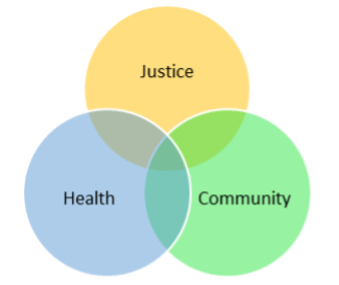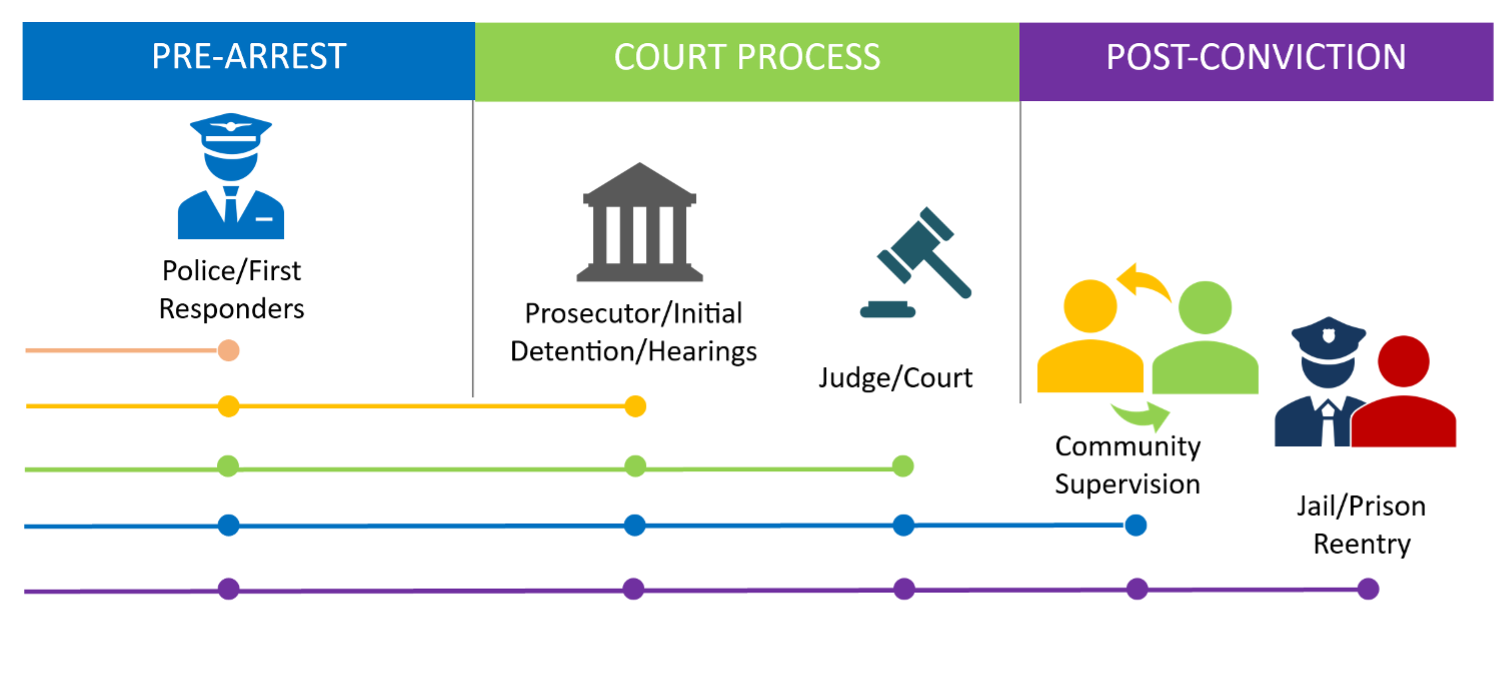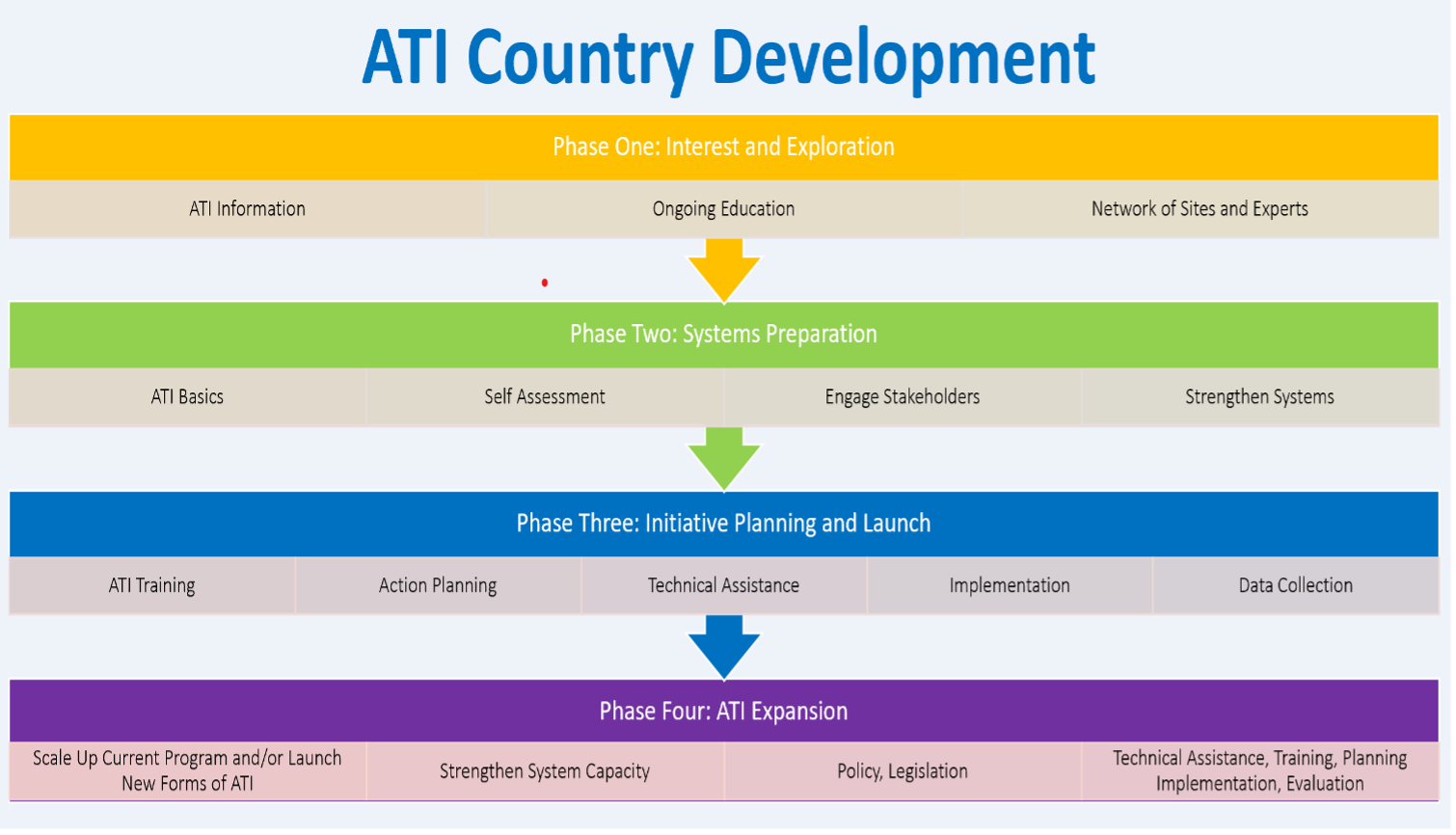

The International Consortium for Alternatives to Incarceration (ICATI) connects international organizations, professionals, and country implementation sites to promote and support the global development and implementation of community-based treatment and care for persons with substance use disorders in contact with the justice system as alternatives to arrest, conviction, and punishment
This community-based treatment and care is made available along the full justice continuum through deflection, diversion, and reentry programs.

ICATI’s three pillars of support provide the foundation for global ATI expansion.
- EXPLORATION AND DEVELOPMENT. Promoting and supporting all phases of national and regional planning, training, technical assistance, and evaluation
- RESOURCES. Identifying, developing, and disseminating resources, including webinars and informational materials, specialized curricula, global atlas of ATI initiatives, quality indicators, guides, tools, and expertise
- NETWORKS. Establishing international networks where sites and countries can connect with one another to share information, experiences, and the impact of their ATI country development progression
The Consortium recognizes and fosters the progression of each country through four phases of ATI Country Development, at its own pace.

ICATI was established in 2023 as a project of the Drug Advisory Programme (DAP) of the Colombo Plan, funded by the US Department of State, Bureau of International Narcotics and Law Enforcement Affairs. Its work is guided by an advisory group of international organizations and experts and is under the Global Leadership of Michele Worobiec.
If you are interested in hearing from us, please sign up for our email distribution list here
